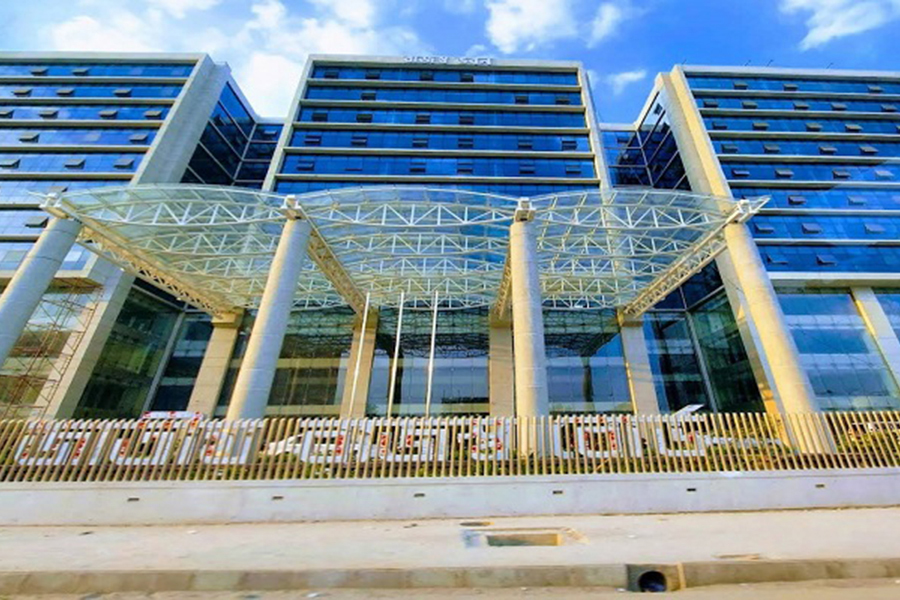
Published :
Updated :

The National Board of Revenue's (NBR's) flat refusal to go by the recipe the International Monetary Fund (IMF) advanced for the Bangladesh tax authority to pursue a revised target for collection of an additional amount of revenue of Tk570 billion for the fiscal year 2025-26 is evidently a departure from its traditional soft stance. Although the NBR hopes that the intent of non-compliance expressed in a meeting between it and a visiting IMF team would not stand in the way of the latter's release of fourth and fifth tranches of $4.7-billion loan package, there is no certainty of this happening. The release of the fourth tranche has been delayed because of non-fulfilment of certain conditions. How the matter would shape is likely to depend on the outcome of the negotiations in second round of meeting between them held yesterday.
The NBR reposes its hope on policy changes and implementation of the existing laws for improvement in its performance but in the first meeting with IMF, it could not brief the latter of the transformative programmes for tax collection. Now the important point here is if this can be convincingly presented for the IMF consideration, will it be enough for the multilateral organisation to relax pressure on the NBR to raise the tax collection to its prescribed level? The policy framework has so long remained quaint and ineffective leaving much to be desired. One of the most important aspects is the tax-GDP ratio which is one of the lowest in the world and even in the South Asian region. In 2024, this ratio was a meagre 7.4 per cent and to everyone's concern, it has been declining over the recent years. Not only the IMF but the well-meaning citizens of this country has long been urging for expanding the tax net and raising the tax-GDP ratio.
Sure enough, the NBR cannot defend its performance. No matter under which regimes ---autocrat or pro-people---the tax authority runs the revenue operatives, at the end of the day the state's incomes are indicative of its economic health and source of the country's development finance and overall progress. The IMF's insistence that the NBR raise the tax-GDP ratio from the current 7.4 to 7.9 per cent is not at all misplaced. In the next fiscal year, this ratio should be pushed to 9.0 per cent, according to the IMF. Does it prove to be a herculean job for the NBR? If the unearned money accumulated by the likes of ACC's Motiur Rahman, former IGP Benazir Ahmed and other corrupt elements ---both in civil, judicial and military services---not excluding the NBR, are taken into account, it exposes the huge revenue those staggering figures would generate had the money been in regular circulation.
Now that the misappropriation of that outrageous scale cannot be expected, closer monitoring of business transaction, government procurement, various public expenditures etc., should help identify tax dodgers and undervalued income sources, undue tax exemptions and other such irregularities and malpractices to expand the tax bases of both individual and corporate taxpayers. When digitisation has made information available, even the cash receipts and cashless transactions can be tracked down with the help of electronic weighing scale, barcode scanner and label scale etc. A concerted campaign for everyone to keep the record straight can certainly improve the regime of revenue income.


 For all latest news, follow The Financial Express Google News channel.
For all latest news, follow The Financial Express Google News channel.